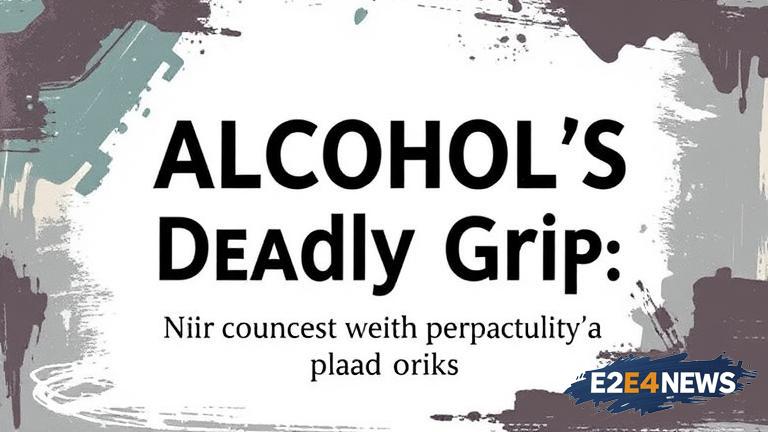Alcohol’s role in Australian homicides is a complex and multifaceted issue that has been the subject of much debate and discussion. According to recent studies, alcohol is a significant contributor to violent crime, including homicide, in Australia. The data suggests that a substantial proportion of homicides in the country involve alcohol, with many perpetrators and victims having consumed alcohol in the hours leading up to the crime. Furthermore, research has shown that the likelihood of violence increases significantly when alcohol is involved, particularly in cases where the perpetrator has a history of alcohol abuse. The Australian Institute of Criminology has reported that in 2019, approximately 40% of homicides involved alcohol, highlighting the need for targeted interventions to address this issue. Experts point to the fact that alcohol can impair judgment, reduce inhibitions, and increase aggression, creating a perfect storm for violent behavior. Additionally, the cultural normalization of heavy drinking in Australia can contribute to a lack of awareness about the risks associated with excessive alcohol consumption. The consequences of alcohol-related violence can be devastating, with families and communities left to pick up the pieces in the aftermath of a homicide. To combat this issue, law enforcement agencies, policymakers, and community organizations must work together to implement effective strategies for reducing alcohol-related violence. This can include initiatives such as increased policing in high-risk areas, education campaigns to raise awareness about the dangers of excessive drinking, and support services for individuals struggling with alcohol addiction. Moreover, addressing the root causes of alcohol abuse, such as poverty, mental health issues, and social isolation, is crucial to preventing alcohol-related violence. The Australian government has acknowledged the need to address this issue, with the National Alcohol Strategy aiming to reduce the harm caused by alcohol. However, more needs to be done to address the scale and complexity of the problem. By taking a comprehensive and multifaceted approach, Australia can work towards reducing the incidence of alcohol-related homicides and creating a safer, healthier community for all. The importance of addressing this issue cannot be overstated, as the consequences of inaction will be felt for generations to come. Ultimately, it is up to individuals, communities, and governments to take responsibility for promoting a culture of responsible drinking and reducing the harm caused by alcohol. As the conversation around alcohol’s role in Australian homicides continues, it is essential to prioritize evidence-based solutions and work towards creating a brighter, safer future for all Australians.
